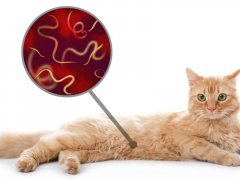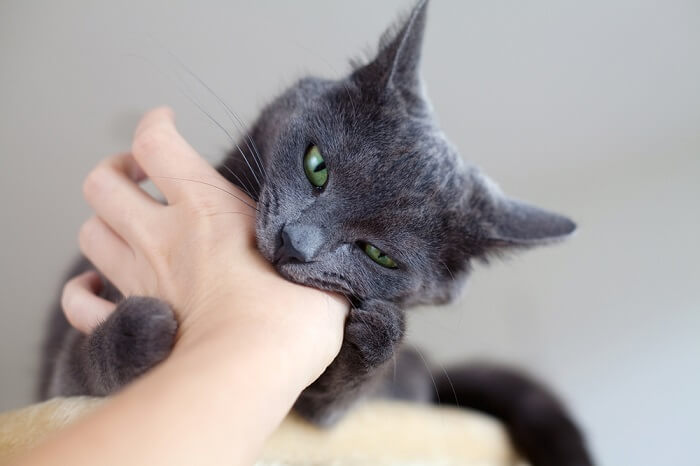
It’s unlikely your snuggly kitty would ever intend to cause harm. But sometimes, cat bites happen accidentally—for example, during play or while trying to give a cat medication.
Unfortunately, cat bites are prone to infections, which can quickly become serious.
Here, we’ll cover cat bite infections, what to do if you’re bitten, how cat bites are treated, and how to prevent bites.
How to Tell if a Cat Bite Is Infected?
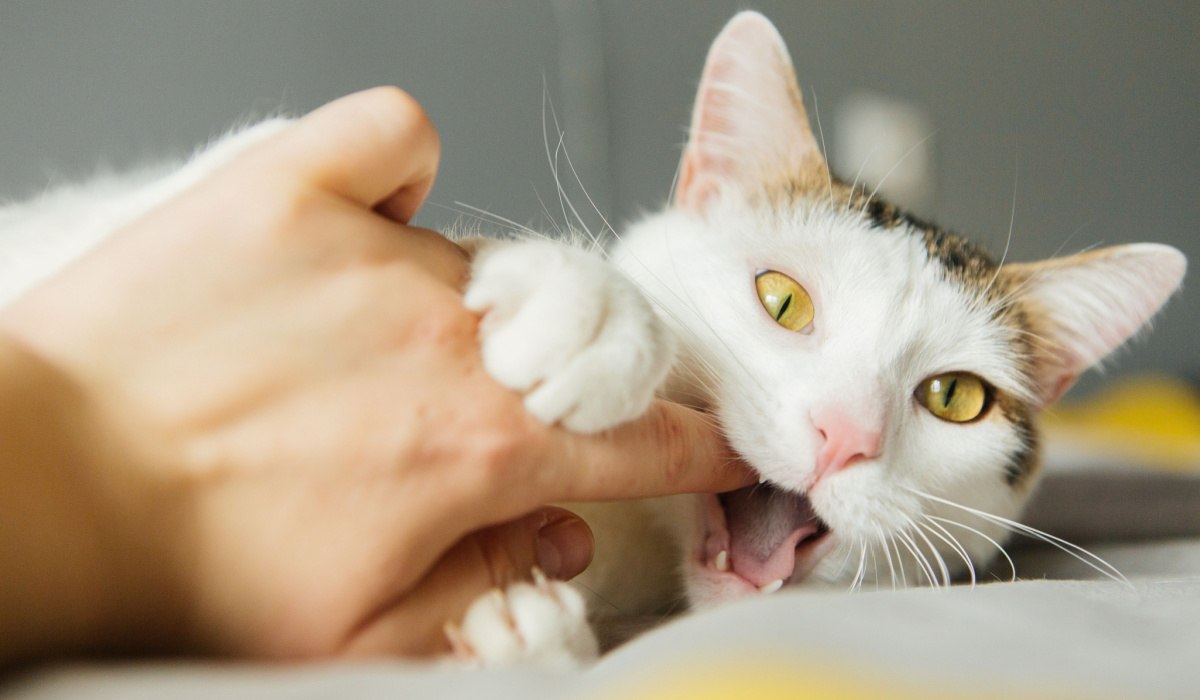
Cat bites are much less common than dog bites. But cat bites are more likely to become infected.
This is largely due to the shape of a cat’s teeth—particularly, the canine teeth that look like needles.
Unlike a dog’s crushing bite injuries, cat bites create narrow but deep puncture wounds—with a pinpoint opening on the skin’s surface and a deeper hole underneath.
In other words, the small hole you see on the skin’s surface is just the “tip of the iceberg” with cat bite puncture wounds.
The shape of the wound not only makes cleaning more difficult but also traps bacteria under the skin since the wound’s narrow opening often closes and “seals in” the bacteria before the wound has had time to drain.
Everyone—humans, dogs, and cats alike—have bacteria that live in their mouth. However, cats’ mouths are likely to contain bacteria like Pasteurella multocida, which can cause nasty infections.
During a bite, a cat’s tooth might also transfer pathogens commonly found on human skin (Staphylococcus and Streptococcus) into underlying tissues, creating a “cocktail” of bacterial contamination.
Once trapped under the skin, these bacteria spread and multiply, causing infection and inflammation (cellulitis) of the surrounding soft tissues.
Common signs of a cat bite infection include redness, warmth, swelling, and pain near the bite. Clear or pus-filled discharge may or may not be present.
Can a Cat Bite Be Harmless?
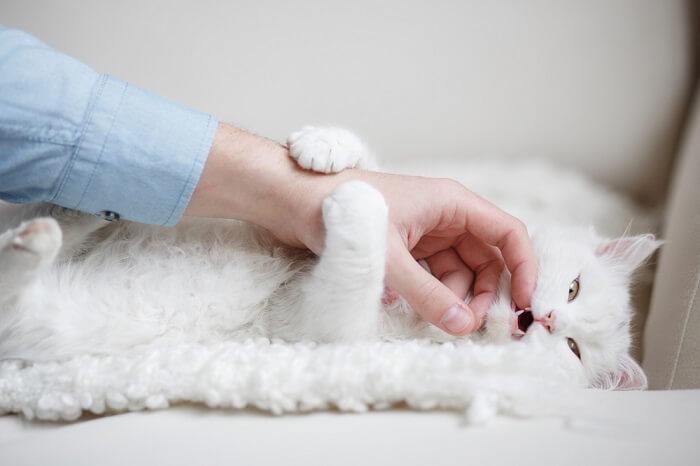
Cat bites can be dangerous, with the level of risk depending on how deep the wound was, along with other factors.
Minor scratches or shallow bites that don’t penetrate the skin often aren’t a cause for concern (although it never hurts to err on the side of caution and consult your doctor).
However, bites that puncture the skin ALWAYS warrant a doctor visit.
That’s because the infection process described above may turn very serious.
For example, infections of bones (osteomyelitis) and joints may occur, especially if the bite occurred on the hand or finger—a common spot for cat bites.
When Should I Be Concerned About a Cat Bite?
Infection may spread to the blood and then to other parts of the body, resulting in serious illness that requires hospitalization.
Symptoms of a more serious infection may include…
- Loss of sensation or mobility to the affected hand/fingers.
- Red streaks extending from the bite area.
- Fever and flu-like symptoms.
- Swollen glands/lymph nodes.
These symptoms following a cat bite warrant an emergency room visit.
Individuals with a suppressed immune system, children, and the elderly are at a higher risk, but severe infections may happen to anyone.
Also Read: Why Does My Cat Bite Me? And How to Get It to Stop
How Long After a Cat Bite Does Infection Set In?
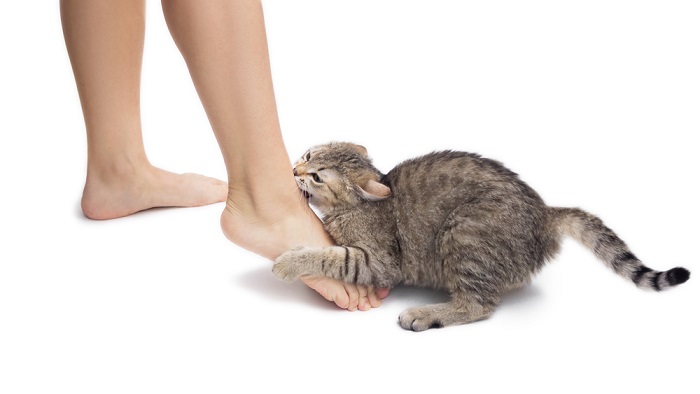
Infections from cat bites can develop quite quickly. Generally, signs of infection can start to show within the first 24 hours after the bite.
However, it’s essential to note that the severity and timeline of infection can vary based on various factors, including the depth of the bite, the location on the body, and the individual’s immune system.
How to Treat an Infected Cat Bite
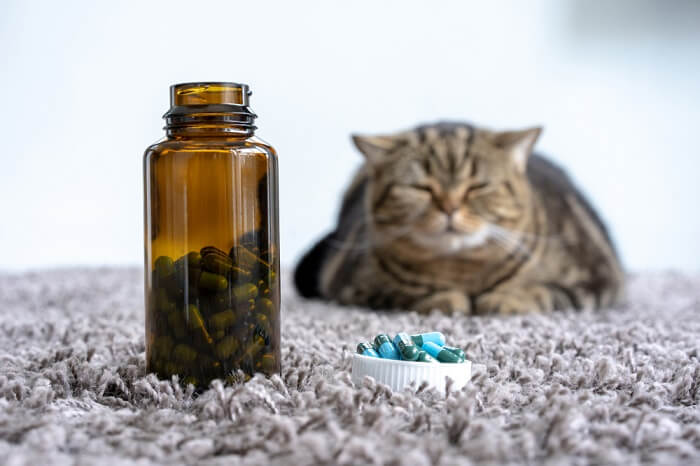
Treatment of a cat bite infection typically involves antibiotics.
Wash the wound immediately if you can, using soap and running water.
If the wound is bleeding, you may apply pressure and a light wrap or bandage to stop the bleeding.
Then see a doctor as soon as you possibly can, within 24 hours or less.
Don’t skip a doctor visit, even if the wound looks good. Remember, an infection may still be festering under the skin.
Never place an ointment such as Neosporin over a cat bite puncture—these substances can prevent drainage and make an infection worse.
Most physicians will prescribe antibiotics as a precaution, since cat bites can become infected (and the infection can spread) quickly.
Often, outpatient treatment with a course of oral antibiotics is all that’s needed.
In other cases, additional medical treatments are required. This may include…
- Deep wound cleaning.
- Stitches.
- Surgery.
- Hospitalization with IV antibiotic injections.
- A tetanus booster or preventive rabies treatments, if indicated.
No matter which treatments you receive, monitor the wound closely and follow up with your doctor as recommended.
To determine if there is a risk of rabies infection, the doctor will ask about the circumstances of the bite (if it was provoked or not), as well as the vaccination history of the cat that bit.
Depending on local laws, reporting animal bites to local health authorities may be required. This is a good reason to keep your kitty up to date on their rabies vaccine!
Preventing Cat Bites
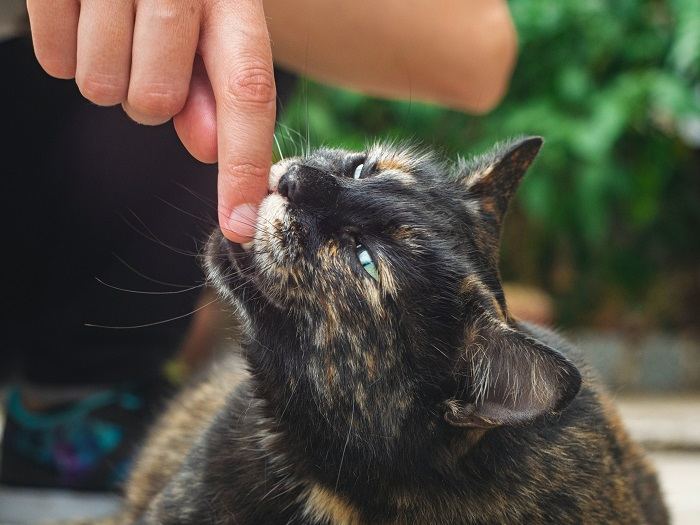
In most cases, cats don’t mean to cause harm. They have their own reasons for biting, which might not be obvious to us human beings.
Common causes of bites include fear, overstimulation (during play or petting), or redirected aggression (for example, you being bitten if you break up a cat fight).
Here are some ways to prevent cat bites…
- Don’t approach or handle stray/feral cats.
- Watch a cat’s body language for signs of fear or irritation (crouching lower, ears back, tail down, and possible growling or hissing).
- Teach children appropriate ways to pet and interact with a cat.
- Never use hands or feet to play with cats. Always use toys, and give your kitty time to calm down if they get too excited during play.
- Don’t force your cat to be held or petted if they don’t want to.
- Be cautious with your cat during times of stress—for example, during fireworks, when guests are over, after bringing another cat into the home, etc.
- Talk to your vet if you have difficulty giving your cat medicine, getting them into the carrier, etc.
Also, talk to your vet if your cat bites when being handled/picked up if they’ve never done so before, as this could indicate an underlying illness or pain. Since cats can’t talk, a bite may be their way of protecting themselves when they don’t feel well.
Also Read: How To Train Your Cat Not To Bite?
Conclusion
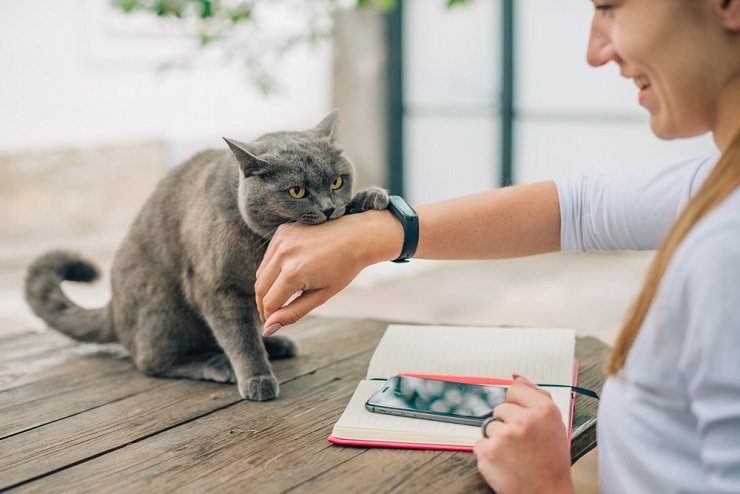
Cat bites, while they may appear small, can lead to serious infections. The wounds should be washed immediately with soap and running water, followed by an urgent doctor visit.
Remember that cats usually don’t mean to hurt anybody. So don’t let fear of a cat bite affect your relationship with your cat.
Instead, empower yourself with knowledge on how to prevent bites, and remember to exercise an abundance of caution and seek medical care if a bite should ever occur.
